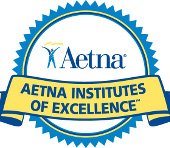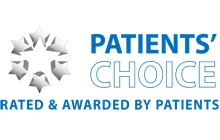Surrogacy provides hope to couples who cannot carry a pregnancy to term and deliver a child.
A surrogate is a woman who carries a baby for a couple. First, in vitro fertilization (IVF) is used to produce viable embryos. The couple may be using the intended mother’s eggs or a donor’s eggs. Once the embryo is created, it is transferred to the surrogate. Once transferred, the embryo implants, develops, and is delivered at term.
Couples considering an IVF cycle with surrogacy must set up an initial consultation with Dr. Levi. A couple’s medical history is taken and psychological screening is completed. Additionally, infectious and sexually transmitted disease screening is performed.
Who can become a surrogate?
A surrogate can be a friend or family member, or an unrelated woman. Many private agencies offer surrogates and can be contacted directly. Park Avenue Fertility’s program can also assist you in finding a surrogate. Potential surrogates undergo physical and psychological screening to ensure their suitability.
Park Avenue Fertility also assists the couple in acquiring an attorney that specializes in reproductive law. The attorney will address important legal issues and draft legal agreements that will set forth the legal rights and obligations of the parties, as well as, compensation and expenses for the surrogate.
Services for gestational surrogacy cycles
Listed below are Park Avenue Fertility’s services associated with a Gestational Surrogacy cycle. If you will be using a donor’s eggs, please click on our Donor Egg Program page on this website.
Surrogate compensation: A monetary amount is sometimes paid by the couple to the surrogate as compensation for her time, efforts and inconvenience. This subject is addressed legally by the attorney.
Surrogate insurance: During this process, an insurance policy is provided for the surrogate. This subject is addressed legally by the attorney.
Initial consultation: This is a meeting with Dr. Levi to assess surrogate suitability.
Cycle management with surrogate: The administrative and clinical coordination of the surrogate leading up to the embryo transfer.
Psychological evaluation and testing: Park Avenue Fertility requires that a clinical social worker or licensed psychologist interview and assess the surrogate’s understanding of the physical, emotional and legal ramifications along with her psychological preparedness and suitability. A standardized psychological test called the MMPI is performed and scored by a licensed psychologist.
Medication protocol class: The surrogate is instructed regarding the administration, dosages, timing, and safety of each medication including Lupron by injection, gonadotropin by injection and HCG. Arrangements for the ordering and delivery of medications will also be made.
Blood screening: The surrogate undergoes testing for any infectious diseases including but not limited to HIV I, HIV II, Hepatitis, Syphilis, Chlamydia, Gonorrhea, and Rubella.
Medications: Fertility drugs can be expensive and prices can range dramatically. A protocol is designed and closely monitored based on the individual’s age, diagnosis, ovarian stimulation history and other relevant factors. Dosage and response to medications vary widely from person to person.
Monitoring for oocyte retrieval: The donor or intended mother, depending on whose oocytes are being retrieved, is monitored carefully with periodic blood tests and multiple ultrasounds to determine hormone levels, regulate medications and track follicular development.
Monitoring for embryo transfer: The surrogate is monitored carefully with periodic blood tests to determine hormone levels, regulate medications and track the development of the uterine lining to determine the readiness for embryo transfer. Office visits will include ultrasounds, phlebotomy, injection teaching session for the medications Lupron and Progesterone, and a uterine sounding/mock embryo transfer will be performed.
Anesthesia for oocyte retrieval: Anesthesiology services are provided for the oocyte retrieval.
Oocyte retrieval procedure: Oocytes are retrieved transvaginally. Using ultrasound guidance, a specialized needle is carefully inserted through the vaginal wall and into the ovaries. Gentle suction is applied and the fluid from each ovarian follicle is removed as is the egg itself. The oocytes are transferred immediately to the embryology laboratory.
Embryology and andrology lab: Procedures that are performed by the embryologist and andrologist include sperm preparation, sperm wash, oocyte identification from the follicular fluid, insemination of oocyte, cultures, and preparation of embryo.
Intracytoplasmic sperm injection: In cases where the sperm may have problems penetrating the outer shell of the egg, fertilization is aided by a micromanipulation technique (ICSI) performed by the embryologist.
Assisted zona hatching: This laboratory procedure performed by the embryologist involves thinning or making a small hole in the protective layer (zona pellucida) that surrounds the embryo. Before an embryo implants into the uterus, it must “hatch” from the zona pellucida. There is some evidence that in some women, the zona may be thickened or hard, restricting the embryo from hatching. Thus, by making a small hole in the zona pellucida, the hatching can occur without issue. The hatched embryo is then transferred into the uterine cavity.
Embryo transfer with ultrasound guidance: The highest quality embryo(s) are transferred to the surrogate’s uterus with ultrasound guidance using a thin, soft catheter which is passed through the cervix and into the uterus. This is performed with the aid of a speculum and requires no anesthesia.
Optional services for gestational surrogacy cycles
-
- genetic screening and chromosomal screening
- pre-implantation genetic testing , PGT
- cryopreservation and storage of embryo(s)
- cryopreservation and storage of sperm
Finances associated with the surrogacy program
One of our patient care coordinator (PCC) will contact the couple’s insurance company to check for any services that are covered by their insurance plan. Covered services will be submitted to insurance. All other fees will be outlined by the PCC and explained, in person and in writing, prior to the start of the process.
At Park Avenue Fertility, Dr. Levi and his team are here to help you every step of the way. Want more information about gestational surrogacy? Contact us.
Award Winning Fertility Clinic
 |
 |
 |
 |

